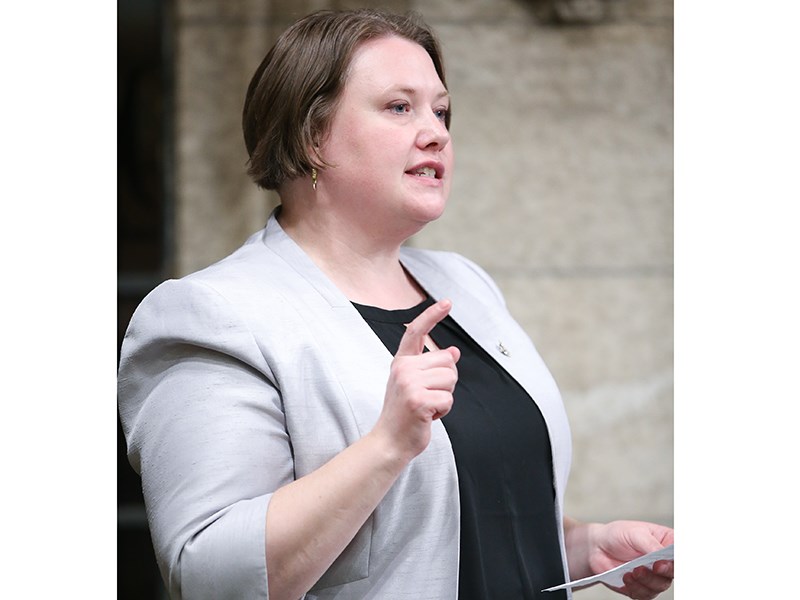North Island-Powell River MP Rachel Blaney stood in the House of Commons during question period on Monday, November 19, to ask about the forced sterilization of Indigenous women in Canada. It was the hardest question of her term in parliament, she said.
“Can you imagine that you cannot see your newborn child until you agree to a procedure that will mean you will never have another child in your life,” said Blaney, “or being sterilized with no knowledge or consent?”
Blaney spoke of several women who, while in residential schools in the 1940s and 1950s, were sent to the hospital to be sterilized as young women, with no knowledge at all, only to be told after it was done.
“This is more than just a gross violation of human rights and a product of systemic racism,” said Blaney. “This is enough, enough apologies, enough talking points. How will this government make sure this never happens again?”
In her response to Blaney, federal minister of indigenous services Jane Philpott said no one government can address the issue alone.
“We know that the core sterilization of women is indeed a gross violation of women's reproductive rights,” said Philpott. “We are actively working with partners in provinces, working with faculties of medical education and health professions to ensure that culturally safe care is available.”
Blaney said the NDP has been asking successive governments for 40 years to take action. She said she knows of several Indigenous women who were sterilized and added that it happened again in 2017.
Currently, she said there are 60 women who are going through a legal process who have stories to tell.
“It's hard to find language to wrap around even the thought of one story of the woman who had given birth and they said, ‘you cannot see your newborn child until you agree to being sterilized,’” said Blaney. “Imagine any Canadian woman thinking that's an okay conversation after you've just given birth. This story is horrifying. It's inhumane and it really goes against the rights of all Canadians.”
Blaney wants Philpott to guide this path because it goes against reconciliation.
While Canadians want to be at a place of moving forward with reconciliation, Blaney said the stories on sterilization of Indigenous women undermine that foundation because people are asking, “Why is this still happening?”



